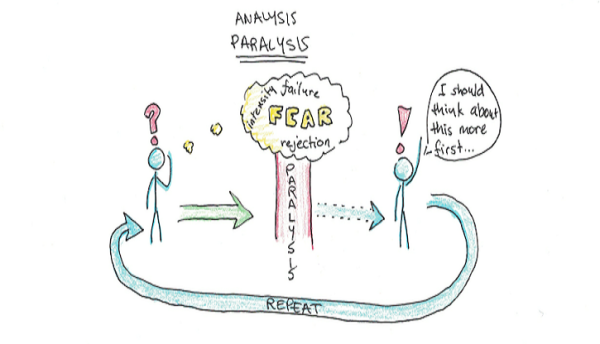By Sajeeb Sarker
Analysis Paralysis
Media School August 13, 2024

Analysis paralysis can be percieved as a paradox of choices. Photo: collected.
Analysis paralysis is the inability to make a decision due to over-thinking a problem. It occurs when a person over-analyzes or overthinks of alternatives, and it rather prevents them from making a decision.
Over-analyzing or overthinking often produces too much data or too many options than one can actually process effectively to reach a solution. Going over and over again through the pros and cons of each option ultimately makes it difficult to make a choice. Analysis paralysis is that very inability to pick one from too many options.
Analysis paralysis can occur to individuals as well as groups.
In short, we can say that analysis paralysis occurs when over-analysis or overthinking of alternatives prevents an individual or a group from making a necessary decision because of a 'choice overload'. Thus, it can also be percieved as a paradox of choices.
Analysis paralysis is believed to be a very old human problem. One classic reflection of it can be found in the famous soliloquy by Prince Hamlet in William Shakespeare’s play Hamlet (Act 3, Scene 1): “To be, or not to be – that is the question”.
According to psychologists, the root cause of analysis paralysis is anxiety. People fear choosing the wrong option and thus they tend to keep exploring different other options. But, they often end up exploring too much!
Probable solution
Using ‘stair-step’ strategy can be of great help in this regard. The stair-step strategy is reaching towards the big decisions by taking a series of small steps.


